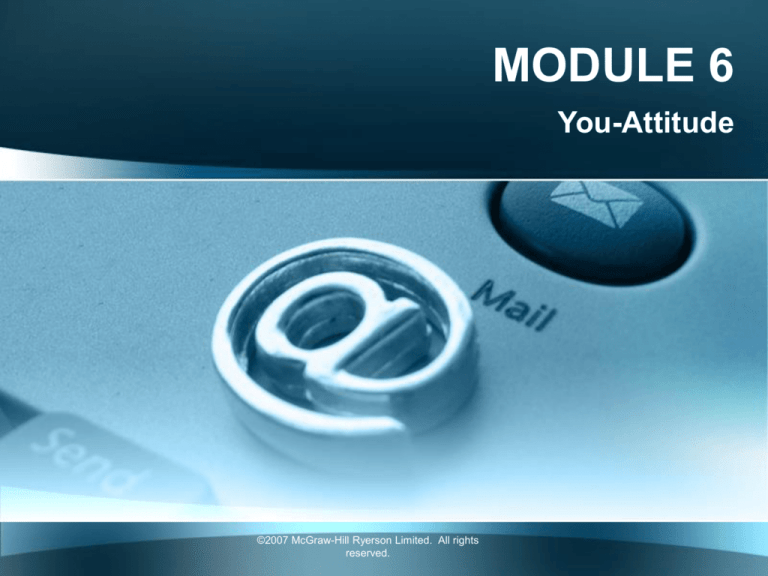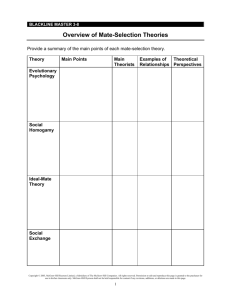
MODULE 6
You-Attitude
©2007 McGraw-Hill Ryerson Limited. All rights
reserved.
Module 6
Skills to
• Begin building goodwill
• Adapt your message to the audience
• Emphasize what the reader wants to know
• Assess your messages for you-attitude
©2007 McGraw-Hill Ryerson Limited. All
rights reserved.
Module 6 Outline
• What is you-attitude in writing?
• How do I create you-attitude?
• Does you-attitude mean using the word
you?
• I’ve revised my sentences. Do I need to do
anything else?
©2007 McGraw-Hill Ryerson Limited. All
rights reserved.
You-Attitude
• Looks at things from the
audience’s point of view
• Respects the audience’s
intelligence
• Protects the audience’s ego.
• Emphasizes what the
audience wants to know
©2007 McGraw-Hill Ryerson Limited. All
rights reserved.
To Create You-Attitude
• Talk about the reader, not yourself
• Don’t talk about feelings, except to
offer congratulations/condolences
• Use you more often than I in positive
situations. Use we when it includes the
reader
• Avoid you in negative situations
©2007 McGraw-Hill Ryerson Limited. All
rights reserved.
Creating Goodwill with Content
• Be concise and complete
• Anticipate and answer questions readers
are likely to have
• Show why information the reader did not
ask for is important
• Explain to readers how the message’s
subject affects them
©2007 McGraw-Hill Ryerson Limited. All
rights reserved.
Creating Goodwill with Organization
• Put information readers are most interested
in first.
• Arrange information to meet your reader’s
needs, not yours.
• Use headings and lists so that the reader
can find key points quickly.
©2007 McGraw-Hill Ryerson Limited. All
rights reserved.






